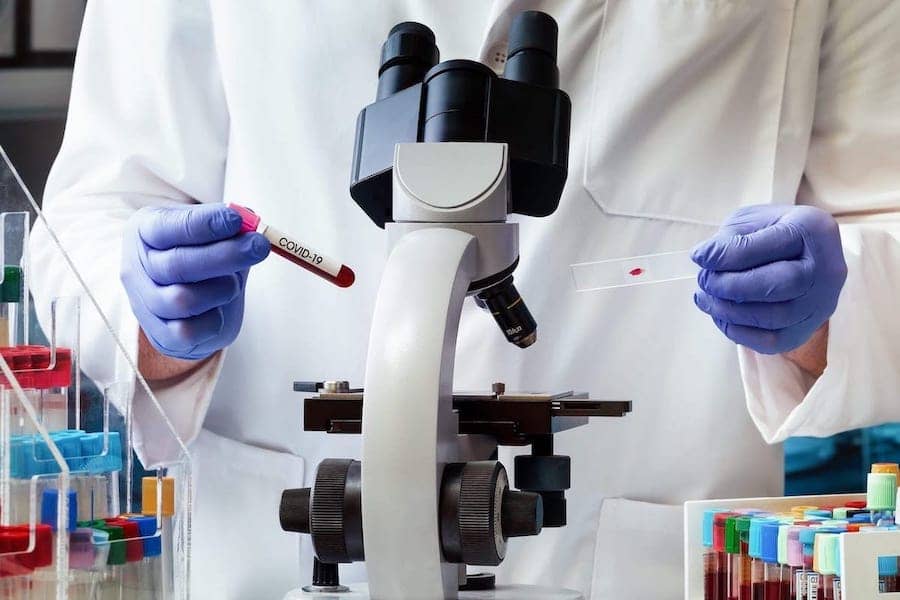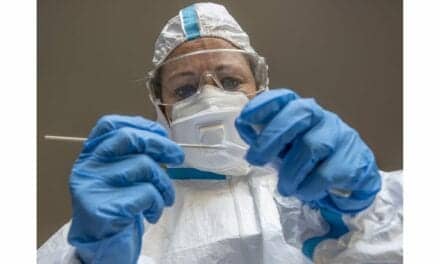Two new studies presented at the 2021 AACC Annual Scientific Meeting & Clinical Lab Expo in Atlanta reveal how antibodies against the SARS-CoV-2 virus can vary among recipients of different COVID-19 vaccines and naturally infected individuals. The findings provide critical data about the antibody patterns related to COVID-19 vaccines that could inform future diagnostic research and vaccination efforts.
Vaccines have become essential tools in the fight against COVID-19, but it is still unclear exactly how the antibody patterns generated from different vaccines change or wane over time. Meanwhile, the spread of the Delta variant and the rising number of breakthrough infections have both highlighted the importance of characterizing antibodies against SARS-CoV-2 in both vaccinated and unvaccinated individuals. Knowing more about antibody patterns could also help clinicians assess individuals’ immunity to SARS-CoV-2, in addition to helping with the diagnosis and management of patients.
Vaccine Immune Response and Side Effects
Researchers led by Michael Kelliher, PhD, of Dartmouth-Hitchcock Medical Center in Lebanon, N.H., have now shown how antibody patterns and responses and adverse reactions can differ in recipients of the Moderna and Pfizer COVID-19 vaccines. In 78 individuals who received Moderna and 70 individuals who received Pfizer, Kelliher’s team collected blood samples before the second vaccine dose, 14 days after the second dose, and 30 days after. The study participants also took a survey in which they rated the severity of adverse effects and symptoms after vaccination.
Overall, individuals who received the Moderna vaccine showed a higher antibody response against the viral spike protein compared with those who received Pfizer (4,244 U/mL vs. 1,986 U/mL 30 days after dose two) and also reported stronger side effects. Kelliher cautions these differences could arise from confounding variables such as the higher mRNA dosage in the Moderna vaccine. His team also found that antibody responses had dropped 30 days after the second dose, regardless of the vaccine given.
“We can’t claim Moderna is better than Pfizer based on these results … but it does seem there is more of a response from Moderna at least in terms of the assay that we used,” Kelliher says. “How that correlates with the total adaptive immune response is unknown, and there is still a decent amount of research that needs to be done on this topic.”
Differing Antibody Patterns
A separate research group led by Xiaochun Zhang, MD, PhD, of University Hospitals Cleveland Medical Center set out to define differences in antibodies against SARS-CoV-2 among vaccinated and unvaccinated individuals.
The scientists tested for antibodies against the SARS-CoV-2 spike protein, receptor-binding domain (RBD), nucleocapsid protein, and the spike protein’s S1 and S2 subunits in three study groups: 33 fully vaccinated healthcare workers, 52 healthcare workers who had recovered from natural infection, and 34 patients with active infections. The test results revealed that the fully vaccinated individuals had an average of 50-fold higher antibody levels than naturally infected, unvaccinated individuals. Antibodies from the vaccinated group also reacted far more strongly to the RBD and S1 viral antigens, suggesting that antibodies against these proteins could be the best targets for tests developed in the future.
Follow-up studies that profile changes in SARS-CoV-2 antibodies over time for vaccinated individuals and those with breakthrough infections could yield further insights, according to Zhang.
“With the third dose of mRNA vaccine on the horizon, this type of study may help identify a practical indicator in optimizing booster-dose planning if an association between antibody level and infection risk is proved,” she says.





